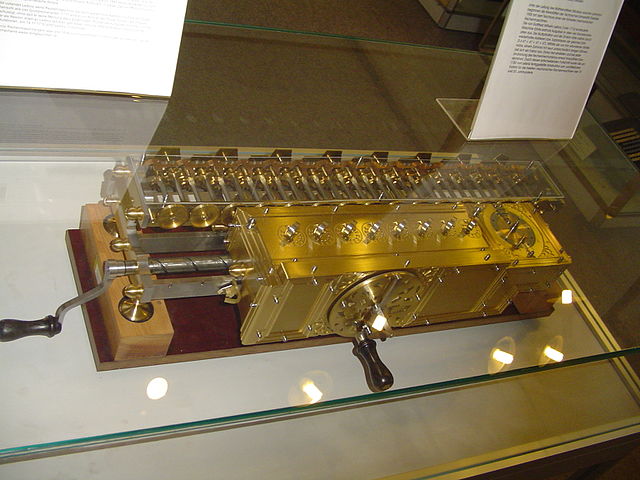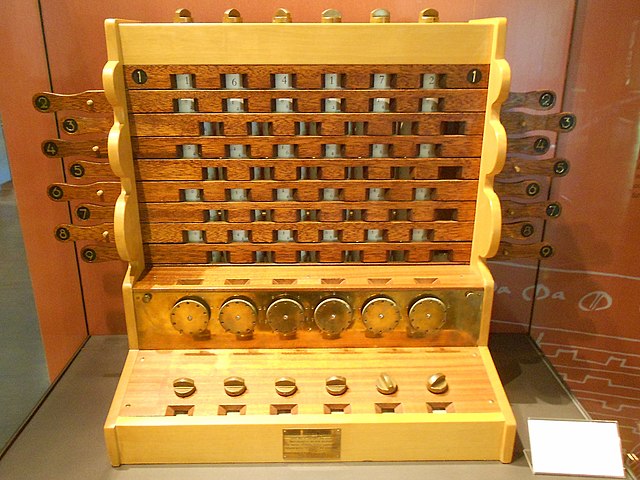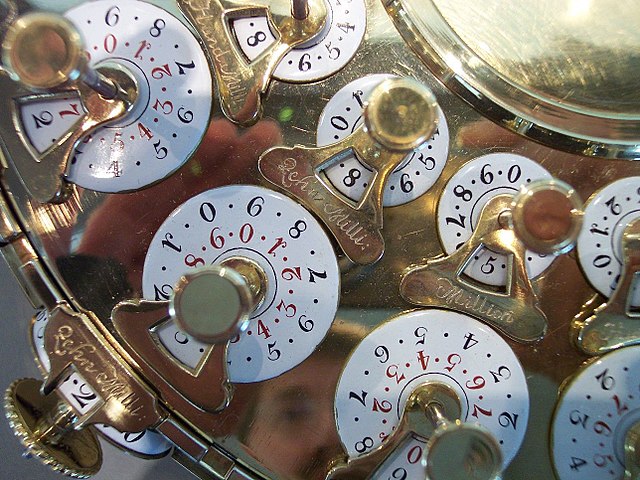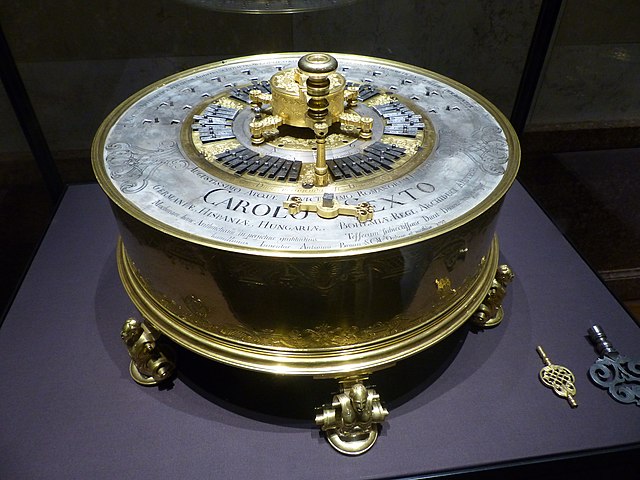The stepped reckoner or Leibniz calculator was a mechanical calculator invented by the German mathematician Gottfried Wilhelm Leibniz around 1672 and completed in 1694. The name comes from the translation of the German term for its operating mechanism, Staffelwalze, meaning "stepped drum". It was the first calculator that could perform all four basic arithmetic operations.
Replica of Leibniz's stepped reckoner in the Deutsches Museum. ... it is beneath the dignity of excellent men to waste their time in calculation when any peasant could do the work just as accurately with the aid of a machine. — Gottfried Leibniz
A mechanical calculator, or calculating machine, is a mechanical device used to perform the basic operations of arithmetic automatically, or (historically) a simulation such as an analog computer or a slide rule. Most mechanical calculators were comparable in size to small desktop computers and have been rendered obsolete by the advent of the electronic calculator and the digital computer.
Four of Pascal's calculators and one machine built by Lépine in 1725, Musée des Arts et Métiers
Replica of Schickard´s calculator
Detail of a replica of an 18th-century calculating machine, designed and built by German Johann-Helfrich Müller.
A mechanical calculator from Anton Braun, dated 1727





